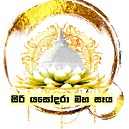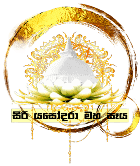Arahant Bhikkhuni Kisagotami
(Kisagotami - The Mother with the Dead Child)
There lived in Sāvatthī a girl named Gotamī, in poor circumstances, the daughter of an impoverished family. Because she was very thin and haggard (kisā), everyone called her Kisāgotamī, Haggard Gotamī.12 When one saw her walking around, tall and thin, one could not fathom her inner riches. One might truly say of her:
Her beauty was an inner one,
One could not see its spark outside.
Due to her poverty and unattractiveness Kisāgotamī was unable to find a husband, and for her this was a cause of deep dejection. But one day it suddenly happened that a rich merchant chose her as his wife, for he appreciated her inner wealth and considered it more important than her family background or outer appearance. However, the other members of her husband’s family despised her and treated her contemptuously. This animosity caused her great unhappiness, especially because of her beloved husband, who found himself caught between love for his parents and love for his wife.
But when Kisāgotamī gave birth to a baby boy, the husband’s whole clan finally accepted her as the mother of the son and heir. Her relief was immense and she felt that a great burden had fallen from her back. Now she was totally happy and contented. Beyond the usual love of a mother for her child, she was especially attached to this infant because he was the guarantee of her marital bliss and peace of mind.
Soon, however, her happiness showed itself to be built on an illusion, for one day her little son suddenly fell ill and died. The tragedy was too much for her. She worried that her husband’s family would again despise her, saying she was kammically unable to have a son, and other people in the town would say, “Kisāgotamī must have done some very despicable deeds to merit such a fate.” Even her husband, she feared, might now reject her and seek another wife from a more favourable background. All such imaginings revolved in her mind and a dark cloud descended upon her. Refusing to accept the fact that the child was dead, she convinced herself that he was only sick and would recover if she could find the right medicine for him.
With the dead child in her arms, she ran away from her home and went from house to house asking for medicine for her little son. At every door she begged:
“Please give me some medicine for my child.”
And always people replied that medicine was useless, for the child was dead. She, however, refused to accept this, and passed on to the next house, still convinced that the child was only ill. While many scorned her and others mocked her, at last she met, among the many selfish and unsympathetic people, a wise and kind man who recognized that she had become mentally deranged because of her grief. He advised her to visit the best physician, the Buddha, who would surely know the right remedy.
She immediately followed his advice and hurried to Jetavana, Anāthapiṇḍika’s monastery, where the Buddha was staying. Arriving in renewed hope, with the child’s corpse in her arms, she ran up to the Buddha and said to him,
“Master, give me medicine for my son.”
The Awakened One replied kindly that he knew of a medicine, but she would have to procure it herself. Eagerly, she asked what it could be.
“Mustard seeds,” he replied, astounding everyone present.

Kisāgotamī inquired where she should go to obtain them and what kind to get. The Buddha replied that she need bring only a very small quantity from any house where no one had ever died. She trusted the Blessed One’s words and went to the town. At the first house she asked whether any mustard seeds were available.
“Certainly,” was the reply.
“Could I have a few seeds?” she inquired.
“Of course,” she was told, and some seeds were brought to her. But then she asked the second question, which she had not deemed quite as important:
“Has anyone ever died in this house?”
“But of course,” the people told her. And so it was everywhere. In one house someone had died recently, in another house a year or two ago; in one house a father had died, in another a mother or a son or a daughter. She could not find any house where no one had ever died.
“The dead,” she was told, “are more numerous than the living.”
Towards evening she finally realized that she was not alone in being stricken by the death of a loved one: this was the common human fate. What no words had been able to convey to her, her own experience of going from door to door had made clear. She understood the law of existence, the law of impermanence and death within the ever recurring round of becoming. In this way, the Buddha was able to heal her obsession and bring her to an acceptance of reality. Kisāgotamī no longer refused to believe that her child was dead: she understood that death is the destiny of all beings.
Such were the means by which the Buddha could heal grief-stricken people and bring them out of their overpowering delusion, in which they perceived the whole world from the narrow perspective of their own personal loss. Once, when someone was lamenting the death of his father, the Buddha asked him which father he meant: the father of this life, or of the last life, or of the life before that. For if one wanted to grieve, then it would be just as well to grieve for the other fathers, too (Pv 8; J 352). Another rime a grief-stricken person came to his senses when the Buddha pointed out to him that his son would be reborn and that he was only lamenting for an empty shell (Pv 12; J 354).
After Kisāgotamī had emerged from her delusion, she took the child’s lifeless body to the cemetery, buried it, and then returned to the Enlightened One. When she came to him he asked her whether she had gotten the mustard seeds.
“Done, venerable sir, is the business of the mustard seeds,” she replied, “only grant me a refuge.”
Thereupon the Master spoke the following verse to her:
When a person’s mind is deeply attached, Infatuated with sons and cattle,
Death grabs him and carries him away
As a flood does a sleeping village.
(Dhp 287)
As her mind had matured in the course of her ordeal, on hearing this one verse she won insight into reality and became a stream-enterer. Thereupon she asked for admission into the order of nuns. The Buddha gave his consent and sent her to the nuns’ quarters, where she received the going forth and the higher ordination as a bhikkhunī.

After her ordination Kisāgotamī passed her time practicing and studying the Dhamma. One evening, as she watched her oil lamp sputter, it occurred to her that the restlessly hissing flames were like the ups and downs of life and death. The Blessed One, aware that she was ripe for full attainment, came to her and again spoke a short verse:
Though one should live a hundred years
Not seeing the deathless state,
Yet better is it to live for a single day,
Seeing the deathless state.
(Dhp 114)
When she heard these lines, she was able to shed all fetters and became one of the arahants, the liberated ones.
In her stanzas in the Therīgāthā, Kisāgotamī describes the great joy the Buddha imparted to her. Therefore she praises friendship with the noble and holy ones:
To the world the Sage has praised
The value of noble friendship.
By resorting to noble friends
Even a fool becomes wise.
One should resort to worthy people, For thus one’s wisdom ever grows. By resorting to worthy people
One is freed from all suffering.
One should know the Four Noble Truths:
Suffering and its origination,
Then the cessation of suffering
And the Noble Eightfold Path.
(Thī 213–15)
Kisāgotamī knew the value of noble friendship from her own firsthand experience, for the compassionate Buddha, the most noble friend of all, had saved her from all the suffering encountered in the terrible round of rebirths. In her verses of liberation, recorded in the Therīgāthā, Kisāgotamī describes the various sufferings that are peculiar to women. Only when one penetrates a woman’s suffering as thus described can one realize the full extent of her gratitude toward the Buddha, who showed her the way to freedom:
The trainer of persons to be tamed
Has declared as painful the life of a woman.
Painful too is the state of a co-wife.
Some, having borne a child once,
In desperation cut their throats;
The delicate ones take poison.
When the baby obstructs the birth,
Both come to disaster—mother and child.
(Thī 216–17)
The final note of Kisāgotamī’s verses is not a lament but a cry of triumph, expressing her joy in finding liberation and release from all suffering:
Developed by me is the noble path,
The eightfold path leading to the Deathless.
I looked into the mirror of the Dhamma
And thereby I realized Nibbāna.
With dart drawn out, the burden dropped,
I have done what had to be done.
The elder nun Kisāgotamī has recited this,
One with a mind well released.
(Thī 222–23)
A set of verses spoken by Kisāgotamī is also found in the Saṃyutta Nikāya, embedded in a dialogue with Māra. One day, when Māra came to distract her from her meditation—a favourite pastime of his, regardless of his victim’s gender—he taunted her with a verse:
Why now when you’ve lost your son
Do you sit alone with a tearful face?
Having entered the woods all alone,
Are you on the lookout for a man?
Then Kisāgotamī thought to herself:
“Now who has recited this verse—a human being or a nonhuman being?”
Then it occurred to her: “This is Māra the Evil One, who has recited the verse desiring to arouse fear, trepidation, and terror in me, desiring to make me fall away from concentration.” She then replied:
I have gotten past the death of sons;
With this the search for men has ended.
I do not sorrow, I do not weep,
Nor do I fear you, friend.
Delight everywhere has been destroyed,
The mass of darkness has been sundered.
Having conquered the mighty army of Death,
I dwell without defiling taints.
(SN 5:3)
By addressing Māra as “friend” she shows her lack of fear and her equanimity, and Māra, once recognized for who he really is, has no choice but to disappear. The nun Kisāgotamī, having risen from personal tragedy to the highest sanctity, was praised by the Buddha as the foremost nun among those who wore coarse garments, one of the ascetic practices (AN 1, chap. 14).
(From the book: GREAT DISCIPLES OF THE BUDDHA – NYANAPONIKA THERA AND HELMUTH HECKER , Edited with an Introduction by BHIKKHU BODHI)

